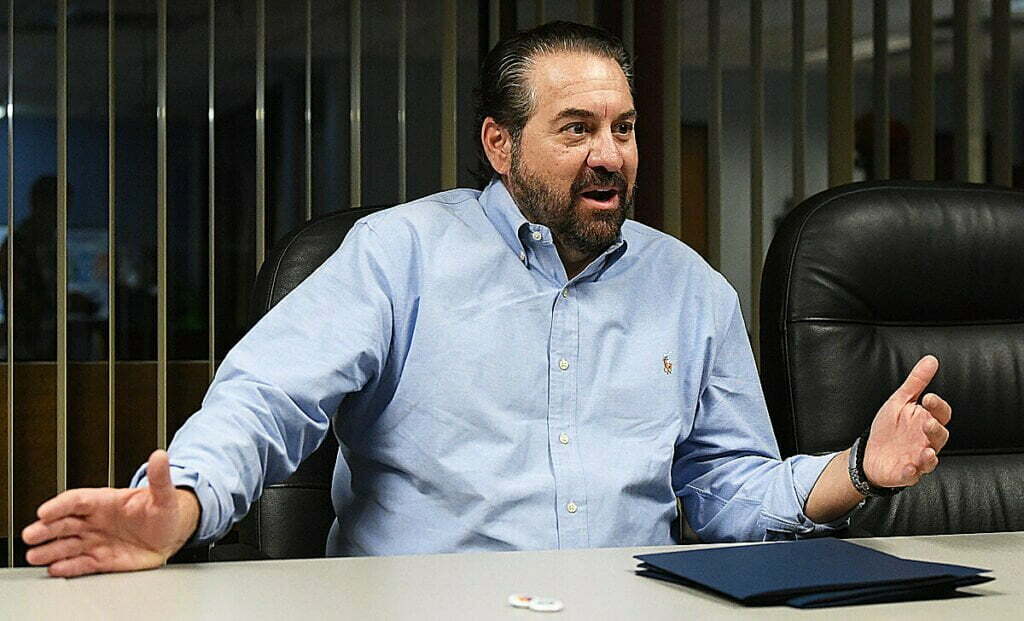State Attorneys General are finally taking action against BlackRock and other financial institutions who enforce ESG investing.
ESG means using Environmental, Social, and Corporate governance factors to evaluate the extent to which a company works on behalf of social goals (in this case, liberal goals) that go beyond the traditional role of a corporation.
Proponents claim this approach benefits the environment and maximizes profits for shareholders. In reality, ESG limits investment decisions, furthers the “woke” agenda, and places unrealistic burdens on small companies. It weakens states’ energy industries, tax bases, and job markets and presents a clear conflict of interest in handling taxpayer dollars.
BlackRock – which manages $10 trillion in assets – claims it is doing nothing to limit investment in the fossil fuel industry, but clearly states on its website that climate activism is not only an integral parts of its own mission but is “the shared responsibility of every citizen, corporation, and government.” Already, BlackRock has used its proxy voting power to penalize 53 companies for “lack of progress on climate.” An additional 191 companies were “put on watch” for the same alleged violation.
About a month ago, West Virginia announced a ban against BlackRock and a handful of other financial institutions guilty of ESG investing (click here to read my previous article). The named institutions – JPMorgan Chase, Wells Fargo, BlackRock, Goldman Sachs, and Morgan Stanley – are prohibited from new state business based on a review that found them as having “categorically limited commercial relations with energy companies engaged in certain coal mining.”
The move is expected to cost the banks up to $18 billion annually.
As detailed in my college Joe Gilbertson’s article (click here to read), Florida Governor Ron DeSantis is also taking a stand against “woke” banks through his 2023 proposal to ban financial institutions and credit card companies from discriminating against customers based on religious, political, and/or social policies, prohibit SBA fund managers from considering ESG factors when investing state funds, and force SBA fund managers to prioritize the maximization of return on investment for retirees over all other factors.
“Do we want our society to be governed by some of the most economically elite and powerful interests in society?” asks DeSantis. “I think our economy is going to be much better off if everything is not politicized.”
In mid August, Arizona Attorney General Mark Brnovich teamed up with 18 other state AGs to demand answers from BlackRock regarding its political agenda.
“Based on the facts currently available to us, BlackRock appears to use the hard-earned money of our states’ citizens to circumvent the best possible return on investment, as well as their vote,” wrote the AGs in an eight-page letter. “BlackRock’s past public commitments indicate that it has used citizens’ assets to pressure companies to comply with international agreements such as the Paris Agreement that force the phase-out of fossil fuels, increase energy prices, drive inflation, and weaken the national security of the United States.”
Aside from reduced shareholders profits, the major risk here is that BlackRock’s behavior will become the standard in corporate America with almost no opposition. And regulatory mandates will follow.
“BlackRock’s coordinated conduct with other financial institutions to impose net-zero [carbon emissions] also raises antitrust concerns,” adds the letter.
What we’re seeing here is that companies are choosing to invest in industries favored by politicians rather than act in the fiduciary best interest of their clients. As noted in Brnovich’s letter, this approach is unfair to the many states that invest in BlackRock to maintain public pension funds.
“Our states will not idly stand for our pensioners’ retirements to be sacrificed for BlackRock’s climate agenda,” argues Texas Attorney General Ken Paxton. “The time has come for BlackRock to come clean on whether it actually values our states’ most valuable stakeholders, our current and future retirees, or risk losses even more significant than those caused by BlackRock’s quixotic climate agenda.”
In addition to joining Brnovich’s letter, Paxton led a 12-state coalition to challenge the Biden Administration EPA’s push to ban the use of Chrysotile Asbestos (a safe and widely-used chemical compound) and joined an Indiana-led amicus brief asking SCOTUS to review a lower court’s ruling that challenges a state’s right to regulate its own emissions.
Earlier this month, a passively-managed energy index fund called Strive Asset Management went public to offer investors an alternative to ESG funds. In its first week, Strive raised more than $100 million in assets and had $160 million in traded volume.
Sources:
The ESG Investing Backlash Arrives
Paxton Among 19 State Attorneys General Investigating BlackRock for Statements on ESG.
